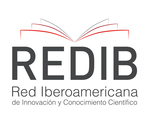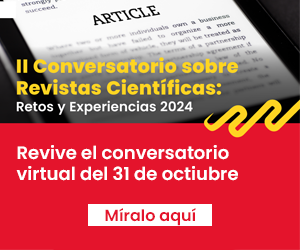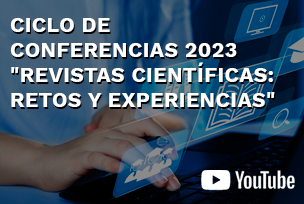Factors associated with post COVID-19 pandemic posttraumatic stress disorder symptoms in medical students FACTORS ASSOCIATED WITH POST-COVID-19 PANDEMIC POST-TRAUMATIC STRESS DISORDER SYMPTOMS IN MEDICAL STUDENTS
DOI:
https://doi.org/10.20453/rnp.v87i2.5205Keywords:
PTSD, COVID-19, associated factor, medical studentAbstract
Objective: To identify post-COVID-19 pandemic-related factors associated with Post-Traumatic Stress Disorder (PTSD) symptoms in medical students from a private university in Lima, 2023. Methods: Cross-sectional study of 193 medical students implemented through a web-based survey using the COVID-19-PTSD questionnaire. The data were tabulated and analyzed using the version 25 of the statistical software SPSS, and employing prevalence ratios (PR) within a 95% confidence interval (CI). Results: Among the participants, 129 (66,84%) were female, with a mean age of 29,66 ± 6,25 years. Being a healthcare worker was an individual factor associated with PTSD (PR: 1,29; 95% CI: 1,05-1,58; p=0,014). Family-related factors such as having children at home (PR: 1,30; 95% CI: 1,09-1,54; p=0,002), cohabitating with relatives during the quarantine period (PR: 1,90; 95% CI: 1,55-2,33; p<0,001), and living with a person diagnosed with COVID-19 (PR: 2,25; 95% CI: 1,78-2,83; p<0,001) were also associated with PTSD symptomatology. Lastly, having had multiple COVID-19 diagnoses (PR: 1,77; 95% CI: 1,67-1,89; p<0,001) and having been hospitalized for such reason (PR: 2,32; 95% CI: 1,44-3,73; p<0,001) were pandemic-related variables associated with PTSD symptomatology among medical students. Conclusions: The mental health of medical students was significantly affected during the pandemic, suggesting the need for adequate psychological support in future similar circumstances.
Downloads
References
Liu H, Petukhova MV, Sampson NA, Aguilar-Gaxiola S, Alonso J, Andrade LH, et al. Association of DSM-IV posttraumatic stress disorder with traumatic experience type and history in the World Health Organization World Mental Health surveys. JAMA Psychiatry [Internet]. 2017; 74(3): 270-281. Disponible en: https://doi.org/10.1001/jamapsychiatry.2016.3783
Lowe SR, Ratanatharathorn A, Lai BS, van der- Mei W, Barbano AC, Bryant RA, et al. Posttraumatic stress disorder symptom trajectories within the first year following emergency department admissions: pooled results from the International Consortium to predict PTSD. Psychol Med [Internet]. 2021; 51(7): 1129-1139. Disponible en: https://doi.org/10.1017/s0033291719004008
Zanardo V, Manghina V, Giliberti L, Vettore M, Severino L, Straface G. Psychological impact of COVID-19 quarantine measures in northeastern Italy on mothers in the immediate postpartum period. Int J Gynecol Obstet [Internet]. 2020; 150(2): 184-188. Disponible en: https://doi.org/10.1002/ijgo.13249
Vetrovsky T, Frybova T, Gant I, Semerad M, Cimler R, Bunc V, et al. The detrimental effect of COVID-19 nationwide quarantine on accelerometer-assessed physical activity of heart failure patients. ESC Hear Fail [Internet]. 2020; 7(5): 2093-2097. Disponible en: https://doi.org/10.1002%2Fehf2.12916
Sohrabi C, Alsafi Z, O’Neill N, Khan M, Kerwan A, Al Jabir A, et al. World Health Organization declares global emergency: a review of the 2019 novel coronavirus (COVID-19). Int J Surg [Internet]. 2020; 76(1): 71-76. Disponible en: https://doi.org/10.1016/j.ijsu.2020.02.034
Terry-Jordán Y, Bravo-Hernández N, Elías-Armas K, Espinosa-Carás I. Aspectos psicosociales asociados a la pandemia por COVID-19. Rev Inf Cient [Internet]. 2020; 99(6): 585-595. Disponible en: http://scielo.sld.cu/scielo.php?script=sci_arttext&pid=S1028-99332020000600585
Sun L, Sun Z, Wu L, Zhu Z, Zhang F, Shang Z, et al. Prevalence and risk factors for acute posttraumatic stress disorder during the COVID-19 outbreak. J Affect Disord [Internet]. 2021; 283: 123-129. Disponible en: https://doi.org/10.1016/j.jad.2021.01.050
Casagrande M, Favieri F, Tambelli R, Forte G. The enemy who sealed the world: effects quarantine due to the COVID-19 on sleep quality, anxiety and psychological distress in the Italian population. Sleep Med [Internet]. 2020; 75: 12-20. Disponible en: https://doi.org/10.1016/j.sleep.2020.05.011
González-Ramírez LP, Martínez-Arriaga RJ, Hernández-Gonzalez MA, de la Roca-Chiapas JM. Psychological distress and signs of post-traumatic stress in response to the COVID-19 health emergency in a Mexican sample. Psychol Res Behav Manag [Internet]. 2020; 13: 589-597. Disponible en: https://doi.org/10.2147%2FPRBM.S259563
Campo-Arias A, Pedrozo-Pupo JC, Caballero-Domínguez CC. Relation of perceived discrimination with depression, insomnia and post-traumatic stress in COVID-19 survivors. Psychiatry Res [Internet]. 2022; 307(1): 114337. Disponible en: https://doi.org/10.1016/j.psychres.2021.114337
Johnson SU, Ebrahimi OV, Hoffart A. PTSD symptoms among health workers and public service providers during the COVID-19 outbreak. PLoS One [Internet]. 2020; 15(10): e0241032. Disponible en: https://doi.org/10.1371%2Fjournal.pone.0241032
Carmassi C, Foghi C, Dell’Oste V, Cordone A, Bertelloni CA, Bui E, et al. PTSD symptoms in healthcare workers facing the three coronavirus outbreaks: what can we expect after the COVID-19 pandemic. Psychiatry Res [Internet]. 2020; 292: 113312. Disponible en: https://doi.org/10.1016%2Fj.psychres.2020.113312
Reyes-Tejada A, Gonzales-Huamán KS, León-Nina EC, Murga-Cabrera AE, Carrasco-Altamirano JA, Mejía CR. Presentación aguda del estrés postraumático por la COVID-19. Rev Cuba Med Mil [Internet]. 2022; 51(2). Disponible en: https://revmedmilitar.sld.cu/index.php/mil/article/view/1718/1301
Bridgland VM, Moeck EK, Green DM, Swain TL, Nayda DM, Matson LA, et al. Why the COVID-19 pandemic is a traumatic stressor. PLoS One [Internet]. 2021; 16(1): e0240146. Disponible en: https://doi.org/10.1371/journal.pone.0240146
Vilchez-Cornejo J, Viera-Morón RD, Larico-Calla G, Alvarez-Cutipa D, Sánchez-Vicente JC, Taminche-Canayo R, et al. Depression and abuse during medical internships in Peruvian hospitals. Rev Colomb Psiquiatr [Internet]. 2020; 49(2): 75-82. Disponible en: https://doi.org/10.1016/j.rcp.2018.08.001
Idoiaga N, Legorburu I, Ozamiz-Etxebarria N, Lipnicki DM, Villagrasa B, Santabárbara J. Prevalence of post-traumatic stress disorder in university students during the COVID-19 pandemic: a meta-analysis attending SDG 3 and 4 of the 2030 Agenda. Sustainability [Internet]. 2022; 14(13): 7914-7923. Disponible en: https://doi.org/10.3390/su14137914
Hernández-Sampieri R, Fernández-Collado C, Baptista-Lucio P. Metodología de la investigación. 6.a ed. Bogotá: McGraw Hill; 2014.
Juraschek SP, Plante TB, Charleston J, Miller ER, Yeh HC, Appel LJ, et al. Use of online recruitment strategies in a randomized trial of cancer survivors. Clin Trials [Internet]. 2018; 15(2): 130-138. Disponible en: https://doi.org/10.1177/1740774517745829
Becerra-Canales B. Adaptación y validación del Cuestionario de Trastorno de Estrés Postraumático (COVID-19-PTSD) en población peruana. Rev Cubana Enferm [Internet]. 2023; 39: e5381. Disponible en: https://revenfermeria.sld.cu/index.php/enf/article/view/5381
World Medical Association. World Medical Association Declaration of Helsinki. JAMA [Internet]. 2013; 310(20): 2191-2200. Disponible en: https://doi.org/10.1001/jama.2013.281053
Alejandro-Salinas R, Rojas-Cueva AC, Visconti-Lopez FJ, Osorio-Martinez ML, Toro-Huamanchumo CJ. Factors associated with post-traumatic stress disorder symptoms in the post-quarantine context of the COVID-19 pandemic in Peruvian medical students. Heliyon [Internet]. 2022; 8(5): e09446. Disponible en: https://doi.org/10.1016/j.heliyon.2022.e09446
Waseem M, Aziz N, Umer M, Noor A, Mustafa M, Khalid Z. Impact of post-traumatic stress of COVID-19 on mental wellbeing of undergraduate medical students in Pakistan. Pakistan Armed Forces Med J [Internet]. 2020; 70(1): 220-224. Disponible en: https://pafmj.org/PAFMJ/article/view/4878
Lee CM, Juarez M, Rae G, Jones L, Rodriguez RM, Davis JA, et al. Anxiety, PTSD, and stressors in medical students during the initial peak of the COVID-19 pandemic. PLoS One [Internet]. 2021; 16(7): e0255013. Disponible en: https://doi.org/10.1371/journal.pone.0255013
Pineles SL, Arditte- Hall KA, Rasmusson AM. Gender and PTSD: different pathways to a similar phenotype. Curr Opin Psychol [Internet]. 2017; 14(4): 44-48. Disponible en: https://doi.org/10.1016/j.copsyc.2016.11.002
Olff M. Sex and gender differences in post-traumatic stress disorder: an update. Eur J Psychotraumatol [Internet]. 2017; 8(Suppl 4): 1351204. Disponible en: https://doi.org/10.1080%2F20008198.2017.1351204
Tsamakis K, Rizos E, Manolis AJ, Chaidou S, Kympouropoulos S, Spartalis E, et al. COVID-19 pandemic and its impact on mental health of healthcare professionals. Exp Ther Med [Internet]. 2020; 19(6): 3451-3453. Disponible en: https://doi.org/10.3892/etm.2020.8646
Pandey U, Corbett G, Mohan S, Reagu S, Kumar S, Farrell T, et al. Anxiety, depression and behavioural changes in junior doctors and medical students associated with the coronavirus pandemic: a cross-sectional survey. J Obstet Gynecol India [Internet]. 2021; 71(1): 33-37. Disponible en: https://doi.org/10.1007%2Fs13224-020-01366-w
Bassi M, Negri L, Delle- Fave A, Accardi R. The relationship between post-traumatic stress and positive mental health symptoms among health workers during COVID-19 pandemic in Lombardy, Italy. J Affect Disord [Internet]. 2021; 280(Pt B): 1-6. Disponible en: https://doi.org/10.1016/j.jad.2020.11.065
Harwood-Gross A, Bergman YS, Pat-Horenczyk R, Schiff M, Benbenishty R. Parenthood during the COVID-19 pandemic: post-traumatic growth amongst university students. Fam Process [Internet]. 2022; 62(4): 1608-1623. Disponible en: https://doi.org/10.1111%2Ffamp.12847
Fernandez-Canani MA, Burga-Cachay SC, Valladares-Garrido MJ. Association between family dysfunction and post-traumatic stress disorder in school students during the second COVID-19 epidemic wave in Peru. Int J Environ Res Public Health [Internet]. 2022; 19(15): 9343. Disponible en: https://doi.org/10.3390/ijerph19159343
Wathelet M, Fovet T, Jousset A, Duhem S, Habran E, Horn M, et al. Prevalence of and factors associated with post-traumatic stress disorder among French university students 1 month after the COVID-19 lockdown. Transl Psychiatry [Internet]. 2021; 11: 327. Disponible en: https://doi.org/10.1038/s41398-021-01438-z
Loades ME, Chatburn E, Higson-Sweeney N, Reynolds S, Shafran R, Brigden A, et al. Rapid systematic review: the impact of social isolation and loneliness on the mental health of children and adolescents in the context of COVID-19. J Am Acad Child Adolesc Psychiatry [Internet]. 2020; 59(11): 1218-1239. Disponible en: https://doi.org/10.1016/j.jaac.2020.05.009
Jiang H, Nan J, Lv Z, Yang J. Psychological impacts of the COVID-19 epidemic on Chinese people: exposure, post-traumatic stress symptom, and emotion regulation. Asian Pac J Trop Med [Internet]. 2020; 13(6): 252-259. Disponible en: https://doi.org/10.4103/1995-7645.281614
Khan AH, Sultana S, Hossain S, Hasan T, Ahmed HU, Sikder T. The impact of COVID-19 pandemic on mental health & wellbeing among home-quarantined Bangladeshi students: a cross-sectional pilot study. J Affect Disord [Internet]. 2020; 277: 121-128. Disponible en: https://doi.org/10.1016/j.jad.2020.07.135
Parker AM, Sricharoenchai T, Raparla S, Schneck KW, Bienvenu OJ, Needham DM. Posttraumatic stress disorder in critical illness survivors: a metaanalysis. Crit Care Med [Internet]. 2015; 43(5): 1121-1129. Disponible en: https://doi.org/10.1097/ccm.0000000000000882
Badenoch J, Cross B, Hafeez D, Song J, Watson C, Butler M, et al. Post-traumatic symptoms after COVID-19 may (or may not) reflect disease severity. Psychol Med [Internet]. 2023; 53(1): 295-296. Disponible en: https://doi.org/10.1017%2FS003329172000481X
Einvik G, Dammen T, Ghanima W, Heir T, Stavem K. Prevalence and risk factors for post-traumatic stress in hospitalized and non-hospitalized COVID-19 patients. Int J Environ Res Public Health [Internet]. 2021; 18(4): 2079. Disponible en: https://doi.org/10.3390/ijerph18042079
Blix I, Birkeland M, Solberg Ø, Hansen M, Heir T. The launching and ensnaring effects of construing a traumatic event as central to one’s identity and life story. Appl Cogn Psychol [Internet]. 2016; 30(4): 526-531. Disponible en: http://dx.doi.org/10.1002/acp.3224
Luo C, Santos-Malave G, Taku K, Katz C, Yanagisawa R. Post-traumatic growth and resilience among American medical students during the COVID-19 pandemic. Psychiatr Q [Internet]. 2022; 93(2): 599-612. Disponible en: https://doi.org/10.1007%2Fs11126-022-09981-8
Downloads
Published
How to Cite
Issue
Section
License
Copyright (c) 2024 Cristina N. García-Borjas, Miguel A. Arce-Huamaní

This work is licensed under a Creative Commons Attribution-NonCommercial 4.0 International License.















 RNP is distributed under a
RNP is distributed under a 